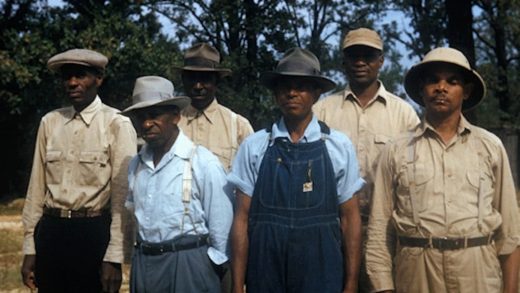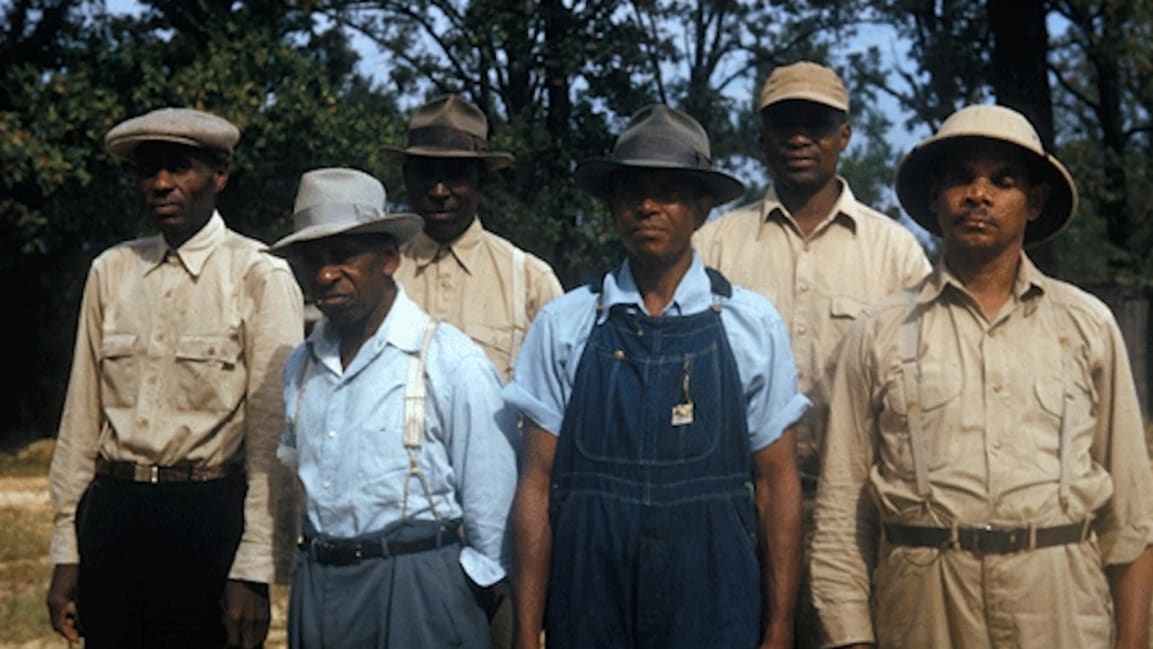These descendants of Tuskegee Study participants are urging Black Americans to get vaccinated
In 1932, Black sharecroppers in Macon County, Alabama, were invited by the U.S. Public Health Service to take part in free treatment for bad blood—a highly unscientific term that referred to a variety of conditions including syphilis, anemia, and fatigue. But the USPHS, and later the Centers for Disease Control and Prevention, were knowingly deceiving them all along. The government’s plan, in what came to be known as the Tuskegee Study, was to track the natural course of syphilis by not giving the participants any treatment at all.
Over the following 40 years, more than 600 men, the majority carrying syphilis, were denied medical care, despite the fact that by 1947 penicillin was known to be an effective treatment. More than 100 of the men died, 40 of their wives contracted the disease, and 19 children developed congenital syphilis. It only ended in 1972, following a journalist’s tip. President Bill Clinton formally apologized in 1997, but no one was ever prosecuted. So for many Black Americans, the study is very real and recent history—and continues to inform medical decisions in the present.
Racist episodes such as Tuskegee have created medical mistrust within the Black community, and that may now be contributing to hesitancy toward the COVID-19 vaccine. As part of its drive to boost numbers among Black Americans, which have been comparatively low, the Ad Council has partnered with a Black-owned agency to launch a campaign directly addressing the Tuskegee Study, featuring descendants of the men subjected to the ethically heinous experiment, in hopes that by confronting the past (as well as acknowledging key differences from the COVID-19 crisis) Black Americans will be better informed in deciding whether to get the shot.
“There’s a significant amount of distrust in our community because of the history of medicine in this country and how Black people have been mistreated,” says Kelli Richardson Lawson, CEO of Joy Collective, the creative agency that’s partnering with the Ad Council. While rates of uptake of the COVID-19 vaccine among Black people have steadily improved over the past three months, they are still low compared with those of white people, by about 1.4 times in the majority of states. It’s an especially concerning gap, considering the higher rates at which Black people have been infected with and died from the virus. Twenty-two percent are taking a wait-and-see approach, signaling a lack of certainty.
A large slice of the slow uptake is certainly due to barriers to access—such as lack of healthcare, and frontline jobs that don’t allow time off—but mistrust is still part of the problem. The Ad Council’s research showed that Tuskegee specifically came up as a reason for doubt among the community. “It’s our job,” says Michelle Hillman, the Ad Council’s chief campaign development officer, “to make sure that misinformation and the trauma of the Tuskegee Study doesn’t play a role in keeping anyone from learning more about the vaccines and making an informed decision for themselves.”
They decided to take the very reason for people’s skepticism and tackle it head on, harnessing the dark episode to inspire people today to make the right decisions. “In America, we have to be able to confront our past,” says Deborah Riley Draper, an award-winning documentarian recruited to direct the ad campaign. “These trials that we’ve gone through as African Americans help us to navigate our future in this country.” Having Draper on board was key, Lawson explains. “It’s important to us to make sure that we are having these stories told from the lens of a Black experience,” she says. Draper most recently directed The Legacy of Black Wall Street, a two-part informative series about the rise of Black economic success in the lead-up to the Tulsa Massacre—another project aiming to educate about and honor sometimes-forgotten legacies.
Featured in the campaign are the direct descendants of some of the study’s participants, who tell the stories of their heritage. One relative is Lillie Tyson Head, president of Voices for Our Fathers, a foundation dedicated to preserving the legacies of the men, and whose father, Freddie Lee Tyson, was one of them. Other narratives include those of Omar Neal, Freddie’s nephew and the former mayor of Tuskegee; and Elise Marie Tolbert, the great-granddaughter of two of the men.
In the ads, the speakers honor their ancestors with fond memories; Neal remembers his uncle as “loving, caring, and jovial.” He talks about the atrocity of the study, but contrasts that with today’s vaccine, which he says is being made available to anybody who wants it. Tolbert discusses how the agricultural backgrounds of her two great-grandfathers, and their involvement in the study, inspired her to become an environmental health scientist. “The path from tragedy to triumph,” Tolbert says in her spot, “travels along the path of learning.” For the creators, it was important to showcase individuals like Tolbert, who’ve used the tragedy to empower their own trust in science and medicine.
Draper directed four ad spots, to be disseminated as public service announcements on TV and online, and a five-minute documentary about the study, to be hosted at the Ad Council’s COVID-19 hub site. Since the start of 2021, the Ad Council has partnered with Joy Collective to specifically target Black American hesitancy as part of its broader campaign, “It’s Up to You,” which focuses on getting people facts about the vaccine so they can make informed decisions for themselves. During the first 16 weeks of the campaign, the Ad Council’s Hillman reports its PSAs reached 70% of Americans 13 and older, garnered 51.2 million online engagements, and drove 5.3 million sessions to the website.
Posed the question of whether bringing back painful memories might have the opposite effect and raise further doubts, Draper and Lawson say the pandemic has already evoked the disturbing chapter for many, so it’s critical to show the stark contrast between then and now. In the ads, “we point out what is dissimilar,” Draper says. The Tuskegee men were specifically barred from treatment. “These men did not have the opportunity to get the treatment that they needed,” she says. “They were denied that as part of the study.” Now, Black Americans have the opportunity to have freedom over their own bodies, by making their own decisions about COVID-19 prevention. “We want to ensure that everyone looks at everything in front of them, and that they don’t allow themselves to be denied.”
Draper also says the timing for the campaign is right, just as we witness a forceful reaction against the teaching of critical race theory, both by feverishly retaliating parents, and by school boards themselves. Now’s the moment to dispel myths about American history and “allow people to navigate this extraordinary time in the world with the facts.” That, Draper says, will help “create the kind of future that’s inclusive, that’s healthy, and that’s a wonderful community for everyone.”
Fast Company , Read Full Story
(64)



